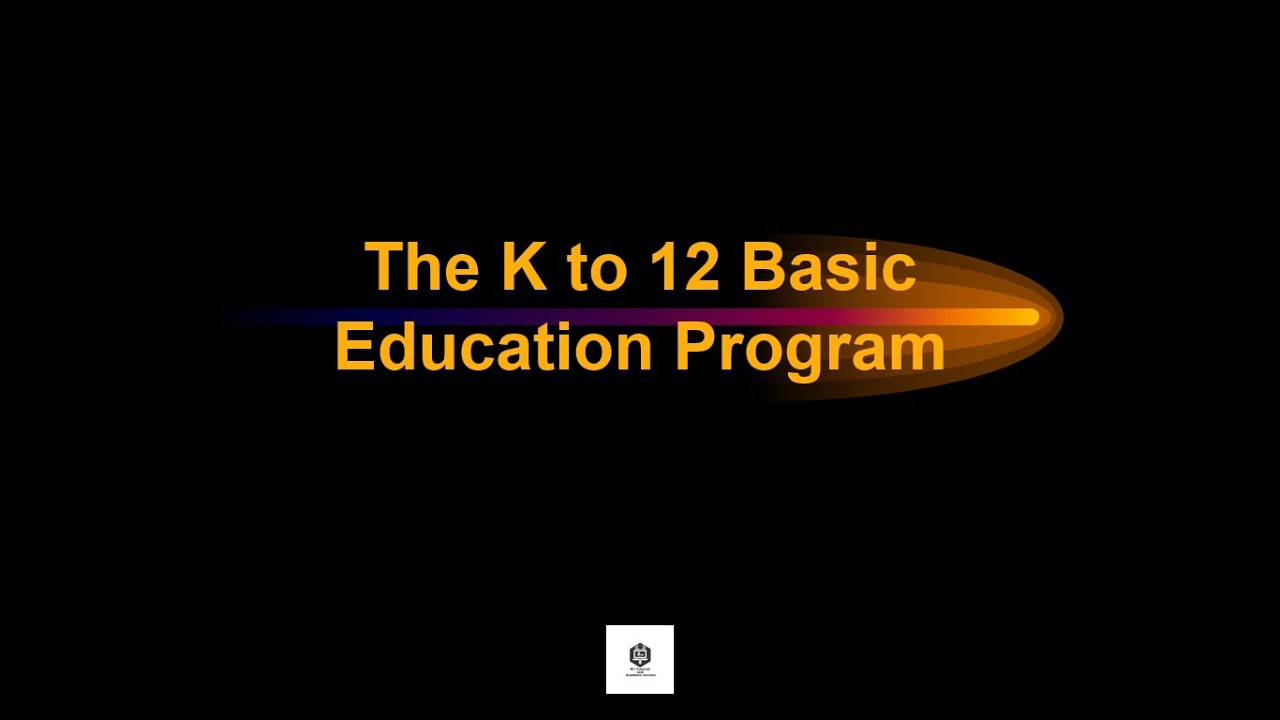★ What is MTB-MLE? - by ENI - Education and I
Summary
TLDRCha-cha Suarez interviews Diana Decker on the importance of Mother Tongue-based Multilingual Education (MTB MLE) in the Philippines. MTB MLE emphasizes teaching through a child's first language, aiding academic learning and language development. It contrasts traditional bilingual education by valuing the first language as a learning tool, rather than a crutch. The method aims to produce globally competent multilingual graduates, starting with the child's native language and progressing towards fluency in multiple languages.
Takeaways
- 🌐 **Mother Tongue-Based Multilingual Education (MTB-MLE)**: It starts with a child's first language and uses it as a foundation to build upon, facilitating better understanding and learning of academic subjects.
- 📚 **Importance in the Philippines**: MTB-MLE is significant in the Philippines as it contrasts with previous bilingual education policies that focused on the second language at the expense of the first.
- 🏫 **Shift from Traditional Bilingual Education**: Traditional bilingual education in the Philippines often sidelined the first language, using it only as a temporary aid, which slowed down the learning process.
- 👨🏫 **First Language as a Learning Resource**: MTB-MLE values the first language as a learning tool, which directly contributes to the development of second languages.
- 🌱 **Enhanced Learning Through Familiarity**: By starting with what children already know, MTB-MLE makes it easier for them to integrate new learning and understand classroom lessons.
- 🔄 **Language Development**: MTB-MLE not only helps in learning academic subjects but also aids in the development of the first language alongside second and third languages.
- 🌟 **Global Competence**: The ultimate goal of MTB-MLE is to produce graduates who are multilingual, multicultural, and globally competent, just like mainstream programs, but the approach is different.
- 📈 **Correlation Between First Language Mastery and Learning**: Research indicates that a strong command of one's first language can enhance overall learning capabilities.
- 🌱 **Building on Strengths**: MTB-MLE builds on the strengths of what children already know, making the learning process more effective and efficient.
- 🌐 **Cultural Relevance**: By starting with the mother tongue, MTB-MLE ensures that education is culturally relevant and meaningful to the students.
Q & A
What is Mother Tongue-based Multilingual Education (MTB MLE)?
-MTB MLE is an educational approach that starts with a child's first language and uses it as a foundation to build upon, helping children understand and articulate academic subjects and concepts.
How does starting education with a child's first language benefit their learning process?
-Starting with a child's first language allows them to understand and internalize academic content more effectively, as it is embedded with meaning. This approach also aids in the development of both first and subsequent languages.
What was the previous policy on bilingual education in the Philippines, and how does MTB MLE differ?
-The previous policy focused on developing the second language with the first language only serving as a temporary support. MTB MLE, however, values the first language as a learning resource and embeds it in the learning process.
How does MTB MLE contribute to the development of second and third languages?
-MTB MLE uses the first language to develop a strong foundation, which then directly contributes to the development of second and third languages, as the child's language skills and understanding are built upon what they already know.
In the context of the Philippines, why is MTB MLE considered important?
-MTB MLE is important in the Philippines because it aligns with the country's linguistic diversity and allows for a more effective learning process by leveraging the child's native language.
What are the principles of MTB MLE?
-One of the key principles of MTB MLE is that the development of the first language directly contributes to the development of second languages, emphasizing the use of the first language as a learning tool.
How does MTB MLE differ from mainstream educational programs?
-While mainstream programs aim to produce strong second and third language speakers, MTB MLE starts with the first language and builds up to the same end goals of global competence in multiple languages and cultures.
What is the ultimate aim of MTB MLE?
-The ultimate aim of MTB MLE is to produce graduates who are multilingual, multi-literate, and multicultural with global competence, using their linguistic and academic skills to achieve their goals.
How does mastery of the first language correlate with overall learning?
-Mastery of the first language provides a solid foundation for learning, making it easier for learners to integrate new information and understand complex concepts in academic subjects.
What role does the first language play in the MTB MLE approach?
-In MTB MLE, the first language is used as a medium to articulate thoughts and interact with learning material, which then transfers to the second language as it is developed.
How does MTB MLE address the potential confusion between it and traditional bilingual education?
-MTB MLE addresses confusion by emphasizing the use of the first language as a learning resource and tool, contrasting with traditional bilingual education that often de-emphasizes the first language in favor of the second.
Outlines

This section is available to paid users only. Please upgrade to access this part.
Upgrade NowMindmap

This section is available to paid users only. Please upgrade to access this part.
Upgrade NowKeywords

This section is available to paid users only. Please upgrade to access this part.
Upgrade NowHighlights

This section is available to paid users only. Please upgrade to access this part.
Upgrade NowTranscripts

This section is available to paid users only. Please upgrade to access this part.
Upgrade NowBrowse More Related Video

What is Mother Tongue? (MTB-MLE- It's Major requirements)

Ultimate Goals of MTB-MLE based on the DepEd Framework (of MTB-MLE)

LANGUAGE POLICIES IN THE PHILIPPINES| Sir David TV

News to Go - Wikang panturo: Filipino, Ingles, o Mother Tongue?

The K to 12 Basic Education Program

LANGUAGE POLICY PLANNING & DEVELOPMENT
5.0 / 5 (0 votes)